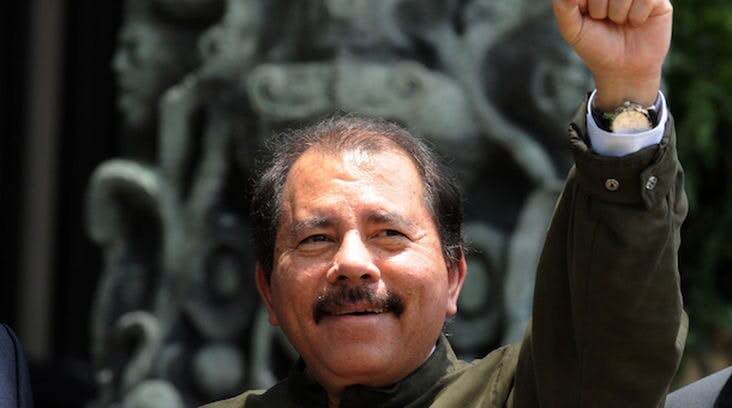Callejas was the only presidential candidate competing against President Daniel Ortega for the general election, which is scheduled for November 6. Callejas was a candidate for the National Coalition for Democracy opposition movement, whereas Ortega is on the ruling Sandinista party ticket. The ruling by the government-controlled court leaves President Ortega as the sole candidate and also sweepingly disqualifies all legislative candidates fielded by the coalition. This marks the seventh time Ortega would be running for president, and, if he triumphs next November, will start an unprecedented third consecutive term in office.
“Just like other Latin American competitive-authoritarian presidents, such as Evo Morales in Bolivia and the late Hugo Chávez in Venezuela, Daniel Ortega has used all sorts of trickery to push for constitutional reforms and illegal court rulings in order to extend his time in power indefinitely,” said Thor Halvorssen, president of HRF. “If the opposition is not allowed to meaningfully compete, the upcoming elections in Nicaragua cannot be considered free and fair and the Inter-American Democratic Charter should be applied to the Sandinista regime,” added Halvorssen.
Ortega ran for president in 2011, even though at the time article 147 of the Constitution explicitly prohibited presidential re-election. In 2010, Ortega had managed to get the Constitutional Chamber of the Supreme Court to hold a secret meeting without the presence of any opposition judges. The Sandinista judges found the constitutional prohibition “inapplicable” claiming it violated the president’s fundamental right to “legal equality” in relation to members of the legislative branch — who, according to another article of the Constitution, can run for re-election.
In January 2014, the ruling majority in the National Assembly of Nicaragua approved constitutional reforms that, among other things, allow President Ortega to run for re-election indefinitely. The opposition has pointed out serious irregularities in the upcoming electoral process, including the judiciary’s usurpation of powers of the electoral body, as well as the banning of independent bodies, both local and international, from overseeing the election. On this last issue Ortega has stated: “Shameless observers. Let them go observe other countries. Here, we are done with international observation … No observers, not the European Union, nor the OAS, are expected to present themselves … They know that in Nicaragua they face a people of anti-imperialist vocation.”
In a phone interview with HRF, Violeta Granera, Luis Callejas’s vice presidential running mate, explained that the opposition is working tirelessly to overturn the illegal Supreme Court ruling and appear on the ballot in November. Granera pointed out that July 28 will be a crucial date for democracy in Nicaragua, since this is the deadline to formally register candidates with the Supreme Electoral Council.
“The principle of alternation of power is enshrined in the Inter-American Democratic Charter (IADC) as an essential element of democracy,” said Javier El-Hage, chief legal officer of HRF. “Even though Ortega pushed through a constitutional amendment allowing for indefinite re-election, he did so by circumventing the separation of powers illegally. An uncontested re-election of Ortega would clearly violate the IADC, which was signed by Nicaragua in 2001. If that is the case, Secretary General Almagro should activate the IADC and, if necessary, call for the suspension of Nicaragua from the OAS,” added El-Hage.
